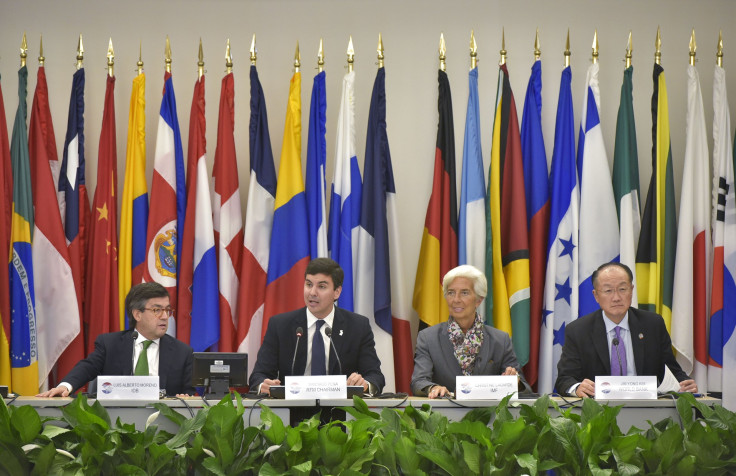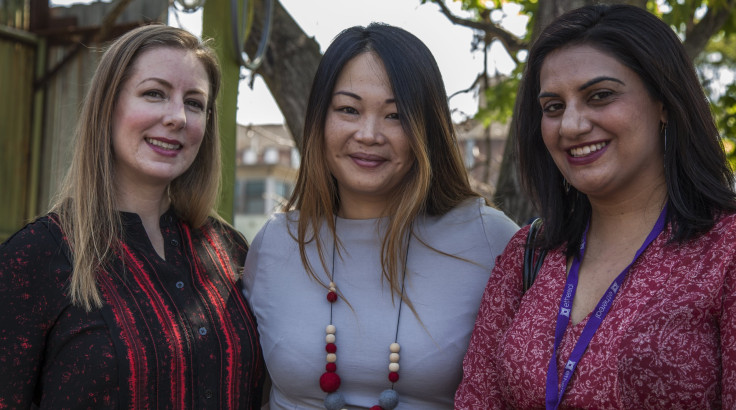Meet The Woman Who Got The World Bank Hooked On Blockchain

Rosanna Chan’s vision for distributed ledger technology was inspired by her own personal journey. The 38-year-old economist and founder of the World Bank Blockchain Group was born in Hong Kong, grew up in Australia, then spent several years living in both India and the United States. She fantasizes about a world with a “magic ledger,” where her driver’s license, medical records and bank accounts could all be simplified into one international identity.

“The world is increasingly made up of global citizens, and there’s all these frictions that make it really hard. All these replications,” Chan told International Business Times. “In a world of blockchain, technically all this could be in just one space.”
Read: These Women Are Making Blockchain More Inclusive
Over the past year, Chan grew the World Bank Blockchain Group to include around 60 employees, including managers and directors across various units. The goal is to consider blockchain solutions for a wide range of international development projects.
CoinDesk reported the World Bank recently helped Kenya create mobile-only government bonds with blockchain technology. The mobile-only government bond, M-Akiba, reportedly launched in March for US $1.5 million. Blockchain land registries could also help avoid economic catastrophe in the wake of a natural disaster.
For example, when the 2010 earthquake destroyed much of Haiti’s paper government records, the country struggled for years to settle land disputes. Families who depended on their land for income were left without proof of ownership. Blockchain advocates think digital land registries could offer a solution. NPR reported a blockchain platform called Bitland, which already filed 500 deeds in Ghana since January 2016, plans to expand soon to Botswana, Kenya and Uruguay.
Chan said the most important first step towards globalizing blockchain is to educate government clients about the technology. “So they can come to the World Bank, or the Inter-American Development Bank, with a mutual voice,” she said. However optimistic she may be, Chan is no starry-eyed believer.
The Wall Street Journal reported after the devastating earthquake in Nepal that "using the hottest high-tech gadgets to help with disasters and development often doesn’t go smoothly." So Chan's approach has been cautious and focused on prioritizing innovation from the ground up. She said blockchain technology doesn’t need to be applied to everything. There is still a lot of experimentation needed to prove which blockchain systems actually make life easier.
Read: How Blockchain Could Rebuild The Healthcare Industry
“What if people lose their private keys? Which might very well happen because we are working with populations that may be not only not computer savvy, but also illiterate,” she said. “Right now you have some really great private sector innovators, but... we’re going to be running into some constraints that people sitting in Silicon Valley might not understand.”
That’s why Chan stressed how crucial it is to educate and empower local leaders themselves. “We’re seeing increasing demand too from our country clients,” she said. She sees a huge opportunity for development projects to innovate from the start instead of rebuilding old systems. The developing world could play a crucial role in the global ecosystem of blockchain solutions.
Rather than perpetuating the digital divide, by funding traditional infrastructure projects in developing nations while wealthier states build high-tech systems, these development projects could help countries make their own proverbial seat at the table. “It’s the ability,” Chan described her favorite thing about blockchain, “to increase financial access and financial inclusion.”
© Copyright IBTimes 2024. All rights reserved.





















